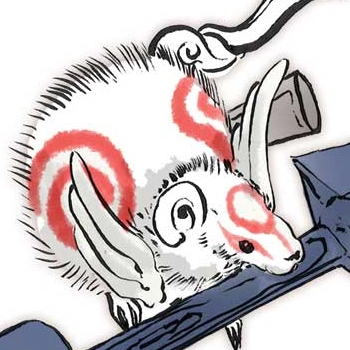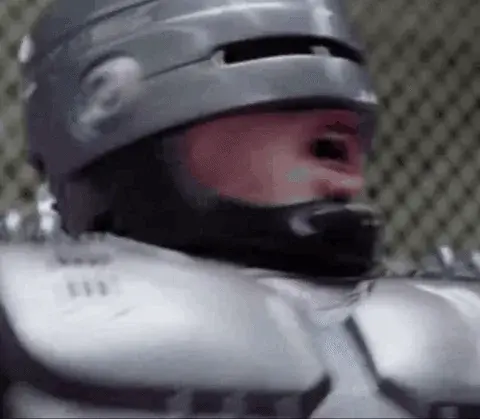What kind of websites did people visit? Were people friendly?
The Internet was…Weird. it was way more anonymous and way less centralized. You didn’t just check Reddit or Lemmy or YouTube, you had a favorites bar. You would go down the list and check 4 different flash websites, 3 forums, and some news/entertainment article sites.
And friends would constantly tell you new sites you had to check out. And webcomics. You would find a webcomic and read it from the start, then add it to your weekly update list.
It was also peak gross Internet. You would always be wary of links friends would send. Goatse and lemon party were guaranteed to be hiding in one.
Everyone had their favorite flash game site. Simple, one player games that you did just for fun. No achievements or social element besides sharing the link with a friend.
one player
That one tank game where you took turns against the computer and/or others players begs to differ :P
Oh yeah and there were a handful of multiplayer ones where one player used the left half of the keyboard and the second player used the right half.
And maybe a handful of websites where there was actually a chatroom where you talked with a stranger while you played your shitty flash game.
FireBoy and WaterGirl was the most popular two-player flash game when I was in school.
Shellshock Live is a steam game I found that’s essentially full fledged tanks with local and online mp
goatse
Found out about that one the hard way in college. Ew.
Consider yourself lucky. I think I was in high school.
I was very relieved when Rick Rolling replaced that trend.
I’ve heard of goatse and two girls one cup but never visited them myself. I’m not sure if I ever want to find out what they refer to
Learnt about the series Making Fiends from an online friend. Good memories 🥰
Never talk to muffin trees!
I was on the younger side so it was mostly flash game and animation sites. Homestar runner, albinoblacksheep, miniclip, addicting games, runescape.
We must be around the same age haha because those were staples for me too, I was obsessed with motherload on minclip, RuneScape and age of empires lol
For anyone interested in replaying those old games
Miniclip and addicting games were so good! Those were simpler times for sure.
also
FIRE ZE MISSILES
But I am le tired
Fucking kangaroos
Miniclip - now there’s a name I haven’t heard in a very long time…
Shout out to XGen Studios, who made Motherload along with Stick RPG, Stick Arena, Defend your Castle, etc.
The era of flash games will remain forever goated in my eyes. Nostalgia tinted glasses but I refuse to take them off. This game is also a core memory. I feel bad for kids nowadays, these games were so much fun and 100% free and playable on any computer.
I used to love the Madness series and that game! There’s a game on Steam by the same devs (at least I think it must be the same devs) - https://store.steampowered.com/app/488860/MADNESS_Project_Nexus/
Homestarrunner.net it’s dot com
I spent hours as a kid building levels in Super Mario Flash. Those were the days!
It was amazing.
Relevant backstory: I was an introverted kid who grew up on the countryside with not a whole lot in common with my peers. I played football because that’s what my “friends” did. I was OK at it, but I never really felt any enthusiasm for it. I only did it because I didn’t know of any alternatives. I got along with most people, but I always got the impression that it was only because I was good at playing the part of someone who fit in.
I got my first PC in 1996. It was an outdated 386, but it allowed me to really get into the low level stuff an learn about it beyond the usual gaming aspect, and for that I am grateful. While my peers were more interested in whether their favorite football team would beat their least favorite team in some important and upcoming match, I was more interested in turning our sat TV dish to see what other satellites I could find. Yes, I know there were systems that did this automatically. We didn’t have that, but what we did have was a programmable card for decoding D2MAC, thus allowing me to view any TV channel that we received. I don’t remember which satellite we normally used, but after some trial and error, as well as looking up something on the internet at a friend’s place, I learned that my newly acquired signal was the Astra satellites. This is how I stumbled across Futurama a few years later.
In 1998 I got an up to date PC, and internet access. It was like a whole new world opened before me. Whatever information I wanted was freely available, and finding like-minded ones were easy. I was 15 at a time, and I still wasn’t allowed to stay online into the small hours. So I went to bed and pretended to sleep until my parents went to bed, so that I could get up and dial up undisturbed. I live in UTC+1, so this worked well, as most of the people I knew online was in the US. When everyone around me went to bed, my world was just beginning after a full day of pretending to fit in. Between midnight and 6 in the morning, dialup was free, so that’s when I could just stay online without having to worry about cost, or whether someone in the house would disconnect me (accidentally or otherwise) by picking up the phone. I dipped my toes into Ultima Online at this time too, but that was only a small part of my online life. In general, by bandwidth was too slow to really do what I do, but there was a whole lot of info, guides, and technical explanations available in .txt format. I also started playing with FreeBSD and slackware linux around this time.
Come 2001 and things were more or less the same, except that I had moved to a rather big city for studies. I got ADSL for the first time, and no longer had to pay for each online minute via dialup. The whooping 2mbit I had all to myself allowed me to start experimenting with running servers and services, in addition to poking and prodding the internet to see what was out there and available (you have no idea how insecure everything was back then).
It didn’t take me long to have access to various servers all over, legal or otherwise, so I could pretty much do as I pleased online, as it couldn’t be linked to me personally. I never used this access for anything disruptive or destructive. The only time I know that I caused something major was actually purely by accident, lol. I was more like the tapeworm you never knew was there, plus i was more interested in corporate servers. I mostly did it to learn more about how everything fit together.
I had a presence in almost all noteworthy internet communities, and while I wasn’t “famous” on the internet, i knew A LOT of people, as most of my life was online. Sure, I met like-minded people in the city, but nowhere close to as many people I knew online. There’s a non-zero chance that others in here knew me once upon a time. Hell, it happened on reddit last year where I told an anecdote and someone responded with “Hey, I remember this. Did you go by REDACTED back in the day?”
Due to various reasons, I decided in 2006ish to leave my old internet identity behind for both practical and legal reasons. Partially because that’s around the time when the lines between internet identity and real world identity began to blur. But I still miss the days before corporate interest ruined the sense of community one had in these small niche corners of the internet.
Thank you so much for sharing this, wow!! You must have so many great stories from that time, the fact that internet communities were small yet distinct enough to remain separate from our real world identity is (sadly) fascinating to me.
Google could actually find you things.
The first page of searches was almost never brimming with corporate shit, but very Web 1.0 looking niche websites.
Browser based games were all the rage.
Oh God, flash animations. Albino Blacksheep. Our sense of humor was… primitive.
Fuck, webcomics too. They were big back then. And mostly shit, lmao.
Everyone had a blog. Not like modern cookie-cutter blogs, but slapdash HTML pages with unintuitive layouts and garish backgrounds and graphics. 9/10 times that’s where super obscure information was. Midi files - god, do kids even know what midi files are anymore?
There were a million fansites for every fandom. No centralization.
There was a much stronger sense of the internet being a unique place, apart from meatspace. Maybe it was just the aftermath of the dotcom bubble busting, but everything was very… open. Communal. People just… freely sharing themselves and their work.
webmaster
hard drive failure
they are not worthy of the title if they just had one disk and no backups. to be so knowledgeable and yet so stupid is a memorable achievement.
Didn’t have one of those but I did have a Livejournal, GreatestJournal, Xanga and Diaryland plus others.
Dial up, mostly. Cable showed up pretty quick. Slower. More open. More egalitarian. Not SEO’d. Simpler. Anyone could make a webpage and find a free place to host it or spend just a few dollars a month for a better site host. Lots of phpbb forums or similar, basically Reddit except each sub is its own independent forum with its own, independent mods. Bots weren’t a concern. Trolls weren’t really formalized, though they certainly existed. Assholes gotta be assholes. Ads were barely a thing. The gnashing of teeth as banner ads first started to make inroads was real. There were lots of search engines.
It was a bit more dangerous though. You could relatively easily download or open a virus, email spam with malware was definitely a thing and not filtered by ISPs. You could find some really dark corners and see some pretty awful things, ogrish was the precursor to live leak. Newsgroups were popular and a great place to find warez (nobody calls it warez anymore).
There were a lot of people that made free software to fill in the gaps where big software needed help. Everything from photoshop filters to windows tweak tools to things like Gimp got some of their starts early on as dedicated programmers did it because they could. Plenty of niche hobby forums, help forums, weird shit, and almost none of it was monetized. There was no real social media. We just had newsgroups, AIM, MIRC, ICQ and the like.
It was like MTV when they actually just played music and didn’t start all the tv show BS.
I do miss that internet. I think it was easier to actually connect with people, content wasn’t shoved in your face, ads weren’t shoved in your face, you weren’t constantly tracked. You weren’t monetized. You were part of the internet, not the object to have money extracted from.
Trolling was one of the first things that was established and basically the main entertainment and mode of use.
didn’t outlook a while back execute javascript in emails? Remember cupholder.exe? it would open your cd drive.
I don’t know, I was too busy playing Starcraft.
edit: Wait, hold on, just remembered something. I’ll just leave this here. Not a rickroll or anything, while that’s tempting, I promise.
Dope game
This is a little bit before, but a story worth telling (again).
In 1995, I got AOL. Of course, this was in the days where only dialup existed, and when AOL was not flat rate, but charged extra for any time spent online over 30 hours a month. I had some bills.
My 486 computer had a 14.4Kbps modem in it, which I decided I would upgrade to a 33.6Kbps. This was the fastest I could get at the time. Surely, I would enjoy this new superfast speed, right?
No, no I would not. I noticed that I was only ever connecting at 2400 - and this was when the “standard” for dialup was 14.4. AOL advertised 28.8 at the time, as I recall.
I tried all manner of modem strings to try and get my fancy 33.6 to connect to AOL at any speed higher than 2400, to no avail. I spent hours waiting in line in their “support” chat rooms (which I later learned were staffed by unpaid volunteers who may not have known anything about anything). Then I finally decided to try using the toll-free 800 number (which AOL charged a premium to use).
Bang, connected at 14.4Kbps. Back to my local number, 2400. … Wait what? Okay, then it’s not me, it’s them.
I did even more digging to discover that AOL only offered “high speeds” in certain metropolitan areas. AOL numbers local to me were not included in any of those, so I got 2400bps, because that’s all AOL would give. And by this time, the “standard” for dialup had jumped to 28.8Kbps.
All of those super high AOL bills from before (they’d since moved to flat rate unlimited) were exacerbated by “downloading art” at 2400bps.
I immediately went to the grocery store, bought a computer magazine, thumbed through it until I found a regular old ISP (Netcom), and called them on the phone to sign up.
Broadband internet was a game changer. I spent a lot of time on fark.com and various other message boards. Chatted with friends over AOL instant messages and IRC.
There was a certain video format for Realplayer that seemed to be the extremely popular for a while and it still…. (Buffering)…. Sucked…. (Buffering)…. Ass
Remember gorgor?
I do not actually but memory is shite lol
A old poster on fark who would post relevant but disturbing images in every thread.
Fark was huge for me back then. Also things like ICQ were the main ways I kept in touch with friends in the pre smart phone times.
In the late 1990s I was at university using their OC-48 lines. So I had a share of a ~2GBit connection while most of the people were lucky to get 56k.
In the dorms, everyone was assigned an IP address but most people still didn’t have their own computers. So my roommate and I convinced a bunch of other people on our floor to give us their IPs - and our RA was also a Network admin, so he was able to facilitate. We ran a web server, forums, Quake and Team Fortress (1) servers (Clan Clam for folks that remember Quake Clans), and some very private file servers. All running on found hardware.
The speed was so fast compared to most folks that it was a bit like having a data related super power.
Magic. That’s when higher speeds started coming around. Downloading a song in less time than it took to listen to the song was suddenly a reality.
My first brush with the internet was in 2000. We had our family computer in the living room. Our dial-up ISP was Funcow. The local newspaper had a little section where they talked about fun websites to visit (family-friendly of course) and we would check them out in the evening. I know that Google existed but we didn’t use it - we had AltaVista, then Yahoo. These were also website directories - basically lists of websites grouped by topics. So if you didn’t find what you were looking for on one website, you’d try the next one, and so on. And the websites themselves were basically made by hand in html. To stand out some people threw in lots of little animated icons garish colors, weird website layouts, background music that couldn’t be turned off… It was 100% amateur and unpolished, and much much MUCH more diverse than today’s internet. But slowly, massively popular websites and tools started to dominate. Microsoft had a huge presence through Hotmail, MSN.com, and MSN Messenger. But Yahoo Messenger had video chatting first (IIRC). There were fansites about everything under the sun but no Wikipedia so researching any given topic in depth was a mammoth, tedious task. In 7th grade I wrote a research paper on ferrets and referenced about half a dozen websites but only collected about two sentences worth of useful information from each - so research was still heavily reliant on books and libraries. Speaking of libraries: that’s where almost everyone went for free internet. Schools and colleges also had computer labs with free internet and woefully inadequate content filters. It was crazy. It was awesome.
deleted by creator
Napster was already gone by the time I got internet access but I do remember Kazaa, Audiogalaxy, Imesh, Ares and eDonkey/eMule.
Forums instead of social media, IRC/ICQ/AIM for chat, websites were much more static… unless using Flash, newgrounds full of Flash games.
FTP/IRC was source of media distribution until transitions to, bittorrent was new, and napster, limewire, kazaa were things. Newsgroups have existed for all time, but not really including them because less mainstream.
Windows would allow broadcast messages to just pop-up on your computer. Needed to implement your own firewall like Zonealarm, these things weren’t just default… computers kinds of just ‘directly’ connected to the internet without any appliance in the way at first.
Edit: Oh yeah, and Steam didn’t exist, so games were bought individually in boxes at stores, and valve games were like sharing your IP with friends, listing of servers… speaking of, early Counter Strike and stuff didn’t have any anti-cheat… if you added anti-cheat to your CS server when first coming out, people getting caught would be shocked, since they didnt know they could get caught, always in denial for ‘false positives’, and really find out who of your friends aren’t actually good and were just cheating all along.
Less central control, more diverse places existed, always felt like you were discovering new communities where people knew each other.
Anything you could think of, ANYTHING, had a community somewhere.
You can catch a glimpse of what the websites were like using the web archive. A good starting point would be a popular web directory, like for example the Google directory from 2004.












